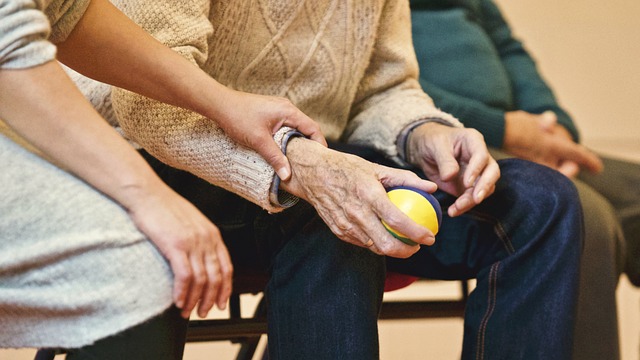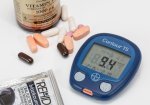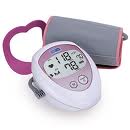Anxiety And High Blood Pressure explained
In this article we also examine the relationship between anxiety and high blood pressure medications
Anxiety and high blood pressure association is a matter of concern among the general public and, as you shall see, in the medical hypertension world. Suffice to say, if you are anxious its probably not the best time to take a blood pressure reading. You will likely get a distorted measurement.
Anxiety can be understood to be a state of worry and nervousness that affects particular individuals for different reasons. Anxiety can also be said to be a psychological and physiological state that can be accompanied by cognitive, somatic and emotional and behavioral elements.
Statistics show that a significant number of people in America suffer from anxiety. This number is as high as 40 million people. This represents 18 percent of the American population.
We highlight here that anxiety is independently associated with high blood pressure.
Previously, prior to conclusive studies, some medical professionals were of the opinion that depression also caused high blood pressure. However studies such as those done in France among a community of elderly people have shown that anxiety but not depression is associated with elevated blood pressure.

The French study involved up to 1389 subjects aged between the ages of 59 to 71 years old. Anxiety appeared to elevate blood pressure, both systolic and diastolic blood pressure numbers, in both male and female subjects.
The effects of anxiety on long-term high blood pressure is not fully understood. It would appear to some medical professionals that anxiety and high blood pressure association goes as far as only causing temporary spikes in blood pressure. This possibly points to a situation whereby blood pressure goes up during the time when the individual is anxious for some reason.
In particular anxiety has also been linked to white coat syndrome which occurs when blood pressure gets elevated when a person is anxious about being in a hospital or the doctor's office for blood pressure measurements.
The effect of anxiety on high blood pressure is in some ways likened to the effect of stress on high blood pressure. Researchers have established a link between stress and temporary high blood pressure.
There is, however, no certainty on the effect of stress on long-term high blood pressure. It is for this reason that individuals who are anxious for any reason are advised to abstain from taking blood pressure measurements. Measuring blood pressure in this state using a home blood pressure monitor, for example, will likely produce inaccurate blood pressure readings.
Women are thought to be more at risk of the effect of anxiety is as far as high blood pressure is concerned. Statistical data supports the idea that women suffer from anxiety at twice the rate of men.
In as much as anxiety is a temporary occurrence in the majority of people, there are particular individuals who suffer from anxiety as a mental health problem. This is more permanent and a lingering issue. Consequently, this affects the productivity and overall control over day to day life of the individuals affected.
While on one end we may
celebrate high blood pressure caused by anxiety is temporary, doctors
are generally agreed that repeated or sustained anxiety can cause an
equal amount of damage to specific organs such as the heart and the
kidneys.
It is thought that sustained anxiety may indirectly cause hypertension by first damaging specific organs. This creates what is commonly known as secondary hypertension. For example, heart disease can lead to hypertension so can kidney disease.
High blood pressure that is caused by damage to kidneys include renovascular hypertension.
Renal hypertension, as it is also known by another name, is a result of
the narrowing of arteries that deliver blood to the kidneys. This
narrowing of the arteries is not apparent, meaning it is not felt as it
occurs.
There is a further unsuspecting angle to how anxiety may also lead to hypertension. Conditions such as anxiety and stress are known to affect the individual's ability to be adequately in charge or control of their life. This directly affects how one eats healthy or unhealthy. Unhealthy diets have long been linked to chronic diseases such as high blood pressure.
We note that through this indirect link, anxiety and stress do contribute to the development of hypertension in an individual albeit overtime. For example, people who are under stress or frequently anxious will tend to eat unhealthy. This may include taking a diet of high cholesterol foods, high sodium foods and sugary snacks which may then lead to obesity, for example. Obesity is a serious risk factor for high blood pressure.
The association between obesity and high blood pressure is well established in a similar fashion as the link between salt and high blood pressure. High cholesterol foods tend to form plaque in vessel walls leading to high blood pressure. This is how a link is established between anxiety that drives bad food choices and high blood pressure.
Stressed and anxious individuals may also resort to smoking and drinking to escape their troubles. Nicotine found in cigarettes is known to damage nerves and vessels which may lead to hypertension and so does ethanol in alcohol. It is no secret that smoking and drinking are long recognized risk factors of hypertension.
What is important to note when considering the link between anxiety and high blood pressure is that this relates mostly to individuals who frequently suffer from anxious situations. It may apply less to sporadic anxious moments that naturally happen to almost all individuals at one point or the other through-out day to day life. Sporadic anxious moments range from taking a driving test, to going on a date
Anxiety and High Blood Pressure Medication
The side effects of some hypertension medications can be responsible for anxiety in individuals who are already hypertensive and on high blood pressure meds. In cases such as these it is important for the patient to approach their physician with a view to switching to a different medication therapy.
For individuals who already have anxiety but have no
high blood pressure, taking anxiety medications will also reduce the
risk of the development of chronic high blood pressure through organ
damage as mentioned earlier above.
Anxiety is treated using pharmaceutical anti-hypertensive drugs as well as through simple lifestyle changes. It is generally recommended that individuals with chronic anxiety be treated using lifestyle changes such as frequent exercise and eating healthy.
While some individuals opt for this, we note that the use of drugs such as anti-depressants may actually lead to high blood pressure as a side effect. Mayo Clinic reports that anti-depressants such as Venlafaxine (Effexor XR), Monoamine oxidase inhibitors and Tricyclic antidepressants, among others, do raise blood pressure in some patients. Individuals taking these meds are advised to check their blood pressure on a regular basis.
Some stronger drugs also tend to lead to permanent addiction and behavioral dependency which sets-up the user for long-term high blood pressure.
We hope we have sufficiently demonstrated the link between anxiety and high blood pressure and the available options in the foregoing write-up to help you make an informed decision.
Return To What Causes High Blood Pressure from Anxiety And High Blood Pressure
Return To High Blood Pressure Home from Anxiety And High Blood Pressure
Disclaimer
Information contained on this website is not meant to replace your doctor's advice.
(c) All Rights Reserved. 2010-2018



